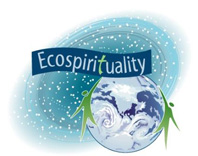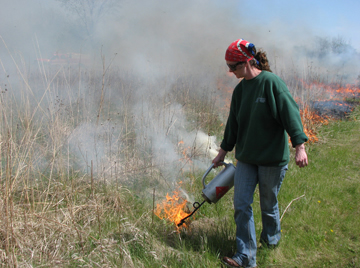Ecospirituality: Reviewing ecological advocacy: what is ours to do?

by Lucy Slinger, FSPA
The FSPA Ecospirituality Committee invites you to consider ways to be a more active ecological advocate.
We start here with some basic definitions. The Merriam-Webster Dictionary defines advocacy as the act or process of advocating or supporting a cause or proposal. The definition of ecology is the totality or pattern of relations between organisms and their environment (from the Greek “oikos” meaning home).
Put the two words together, ecological advocacy, and you have the act of supporting the cause of healthy, sustainable relationships between organisms and the environment (or acting out of a commitment to care for creation).
With that definition, our committee suggests that it is ours to test awareness and work toward action.
How aware am I of environmental problems?
It is only when we are aware of something that knowledge for understanding it is sought. Knowledge brings understanding of just how complex environmental interactions are and how the proposed solutions vary. Often it is our limited understanding that causes less than desirable long-range effects. For example, the introduction of herbicide resistant crops did cut down the amount of work and fossil fuel inputs needed for maximum food crop production in the short term. But, the long-term effect is the introduction of super weeds requiring greater, more toxic herbicide use to maintain productivity of cheap food.
 How can I enhance my ecological advocacy action?
How can I enhance my ecological advocacy action?
Engleson and Yonkers, authors of A Guide to Curriculum Planning in Environmental Education, came up with five different categories that individuals, groups or corporations can act on to promote environmental changes.
Education can use multiple vocal or written forms. A person with ecological awareness will instantly ask: how valid is the message or data given? What is the motivation for the communication? What, if anything, is or should be my personal response? Am I a passive or active consumer of information about the environment?
Consumerism is about understanding that every dollar is a vote for or against a particular product that has numerous environmental impacts. We know that less is more from an environmental wisdom perspective, but how often do we think about a product’s toxicity level, social impact and total cost to the environment? Being an eco-friendly consumer is the number one way individuals and groups can be daily ecological advocates. Search the web for The Story of Stuff and The Story of Solutions; these short videos encourage paradigm shift from an attitude of having more to having better.
Political action is any effort made to persuade an electorate or government agency to conform to the values that promote long-term care for creation. We need to ask ourselves these questions: how proactive am I when I vote? How faithful am I about holding others to the Christian standards I believe? What lobbyists am I knowingly or unknowingly funding? What lobbying am I doing or could I do on behalf of the voiceless aspects of creation?
Legal actions are valid ways for achieving environmental change, yet most people view this as nearly impossible. A whistleblower rarely feels protected by the judicial system. But let’s challenge each other to be informed and inform others about situations of environmental concern. Everyone is able to ask the questions needed, report concerns to appropriate authorities and join efforts that promote changes in laws that fail to protect the elements of creation.
Finally, one can be an ecological advocate through eco-management efforts. Many urbanites, about 98 percent of our population, quickly dismiss this as something for others with greater capabilities, knowledge and political influence to do. But all of us can take action: maintain a houseplant to help filter the room’s air, learn which grasses and other plants promote biodiversity, consider a native plant or butterfly garden in our neighborhoods, and use less toxic ways to fertilize and manage our spaces.
Ecological advocacy is not mandatory; it is a choice. We must ask ourselves: is it OK to simply dismiss what I do daily that makes a contribution to environmental quality?


